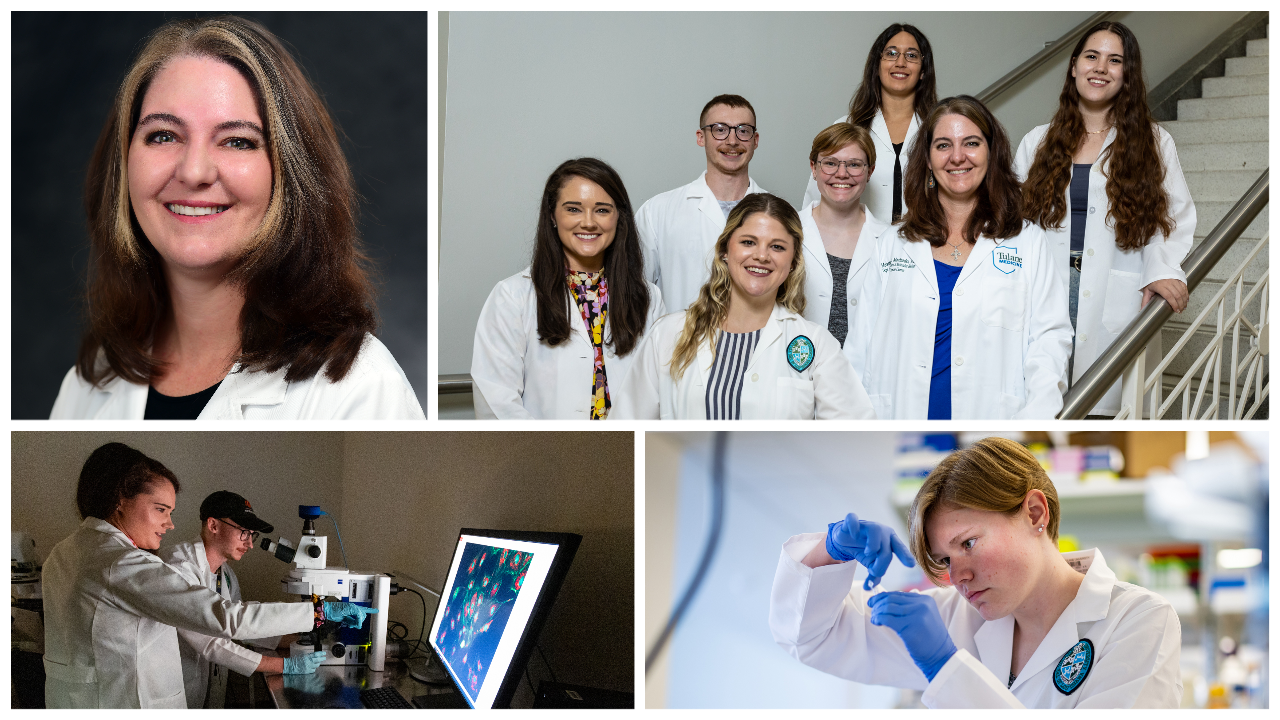Machado awarded $2.4 million grant to study role of macrophages in breast development
Heather Machado, PhD, assistant dean for the Biomedical Sciences Graduate Program and associate professor of biochemistry and molecular biology, was recently awarded a five-year, $2.4 million grant from the Eunice Kennedy Shriver National Institute of Child Health & Human Development.
Her proposed studies aim to understand how macrophages – cells that are part of the immune system – help to maintain mammary gland tissue stability during critical windows of development. Understanding these processes is important for determining how alterations in the mammary gland, such as in response to a mutagenic event, contribute to breast cancer.
"There are critical windows throughout a woman's life that we consider hot spots for breast cancer risk," said Machado. "These include puberty, pregnancy, lactation, and changes that happen after lactation, when the breast is returning to its non-pregnant state."
Macrophages are a variety of immune cells with many different functions. Some help to induce healing when there is injury to the body. They stimulate inflammation, which brings other immune cells to the injured area, ready to begin repair.
At some point during the repair process, there's a switch. A different type of macrophage comes in and shuts it all down. "And that's required in order to complete the healing process," said Machado. "We don't want to be inflamed forever. We want the healing process to conclude."
Macrophages also play a major role in maintaining normal tissue stability and function. Hormones induce changes in the mammary gland during key developmental periods, and macrophages are there to make sure everything stays in check.
"Without macrophages, the breast would be in a terrible state," said Machado. "For example, after lactation dynamic changes occur in the breast. Anti-inflammatory macrophages are required to come in and promote the mechanisms to get that gland back to normal."
However, some of these immune cells can actually promote a tumor-forming environment. So for a high-risk woman who is going through these changes, macrophages can provide an environment conducive to tumor formation and further serve to accelerate tumor growth.
"It's well established that macrophages are tumor-promoting in breast cancer," said Machado. "But why doesn't our immune system attack and clear the cancer? That probably does happen, but sometimes tumor cells find a way to escape. They hide from the immune system, and once they've done that successfully, they can re-program immune cells to help them grow. This is a well-established phenomenon and why immunotherapies are currently at the forefront."
This process hasn't been studied in the context of what happens during normal development. The purpose of this grant is to better understand why these macrophages are there, what they're doing and to identify their mechanisms of action.
"In terms of these critical windows, we want to determine how can we control these hot spots," said Machado. "We want to identify preventive strategies to lower the risk of a patient – especially one who is at high risk to begin with – during these important stages."

